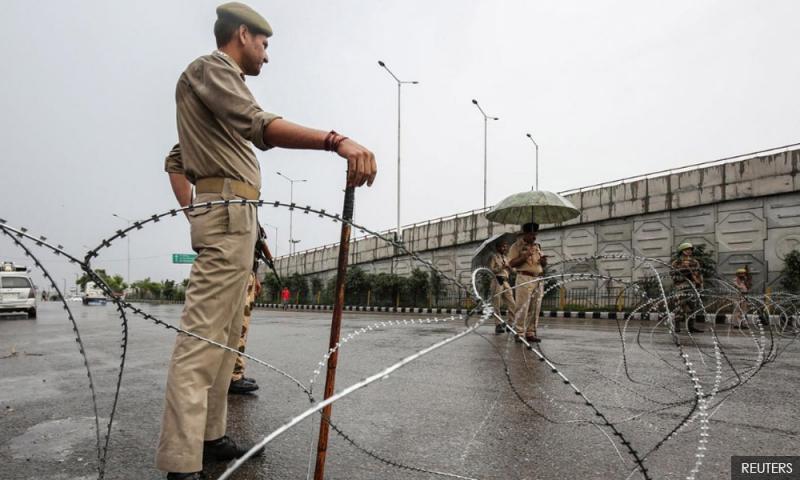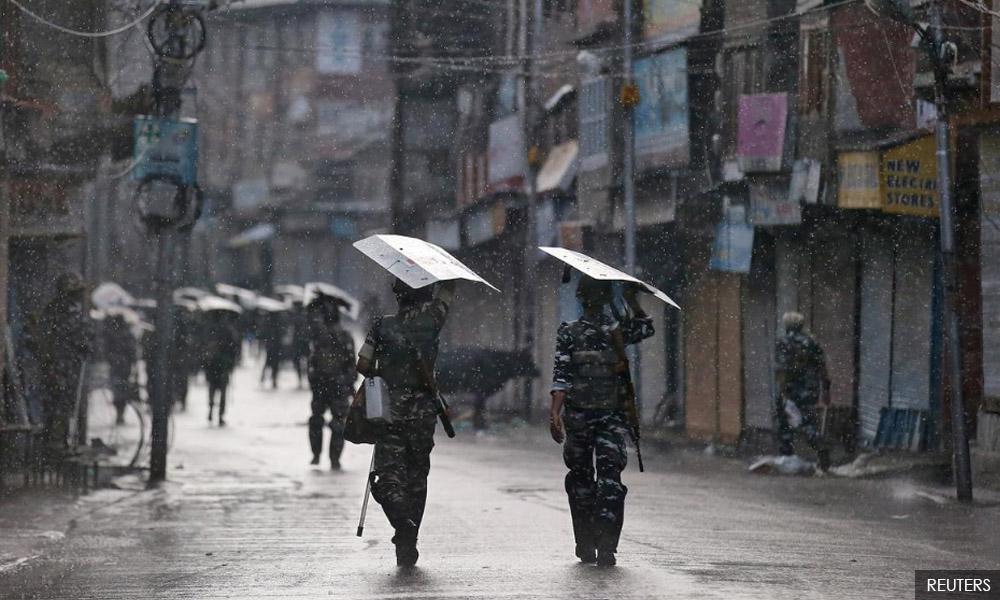Indian authorities reimposed restrictions on movement in parts of Kashmir’s biggest city, Srinagar, on Sunday after overnight clashes between residents and police in which dozens were injured, two senior officials and eyewitnesses said.
Since Saturday there have been a series of protests against the decision on Aug 5 by Prime Minister Narendra Modi’s Hindu nationalist government to revoke the autonomy of Jammu and Kashmir, India’s only Muslim-majority region.
The officials said security forces had been pelted with stones on 47 occasions on Saturday night in the Kashmir Valley, and more than 20 on Sunday. One said the protests were growing more intense.
On Saturday, about two dozen people reported to Srinagar’s two main hospitals with injuries, mainly from pellets fired by Indian forces, said the officials, who declined to be named. Residents and police said many people with pellet wounds were not seeking treatment for fear of being identified and arrested.
The state and federal governments did not respond to questions about the number of incidents and the level of injuries.
Rohit Kansal, Jammu and Kashmir spokesperson, told a news conference that there had been no untoward incidents from areas where the security forces had relaxed restrictions.
Restrictions remain
“There were reports of incidents of disturbances at two-to-three places where relaxation was not given; the security forces dealt with those incidents locally,” he said.
The Indian authorities also reversed a decision to allow internet and mobile phone use in parts of the Jammu region, according to one of the officials. However, at the news conference, Jammu Divisional Commissioner Sanjeev Verma said this was partly because of a technical problem.
The state government said it was still taking measures to ease the clampdown, which has included a severing of all phone and internet links, curfew-like conditions in many areas, the detention of more than 500 politicians, community leaders and activists, and school closures.
It said primary schools in Srinagar were due to open on Monday, government offices were supposed to be back to normal, telephone landlines were being slowly restored, and restrictions on movement were being progressively relaxed.
However, on Sunday people were being turned back at multiple roadblocks set up in the city, and there was no sign of detainees being released or internet and mobile phone services being restored.
Tear gas and pellets
The heavy overnight clashes took place mostly in the Rainawari, Nowhetta and Gojwara areas of the old part of Srinagar, where Indian troops fired tear gas, irritant pepper grenades and pellets to disperse protesters, eyewitnesses and officials said.
One of the officials said Srinagar’s main hospital had treated and discharged 12 people with lighter pellet injuries on Saturday, and admitted five with more serious pellet wounds.
The hospital officials and a police officer told Reuters that 65-year-old Mohammad Ayub had died in the hospital on Saturday night after being admitted with breathing difficulties from tear gas and pepper grenades fired in the old city.
India has been battling a revolt for 30 years in the part of Kashmir that it controls, in which at least 50,000 people have been killed. Critics say the decision to revoke autonomy will cause further alienation and fuel the armed resistance.
Some also say they fear that Hindus will eventually come to dominate the state, and that Kashmiri Muslims will lose their cultural and religious identity.
The change will allow non-residents to buy property in Jammu and Kashmir, and end the practice of reserving state government jobs for local residents.
Modi’s government has said the measure is necessary to defeat terrorism, reduce corruption and nepotism, speed up development, and integrate Kashmir fully into India.
- Reuters






